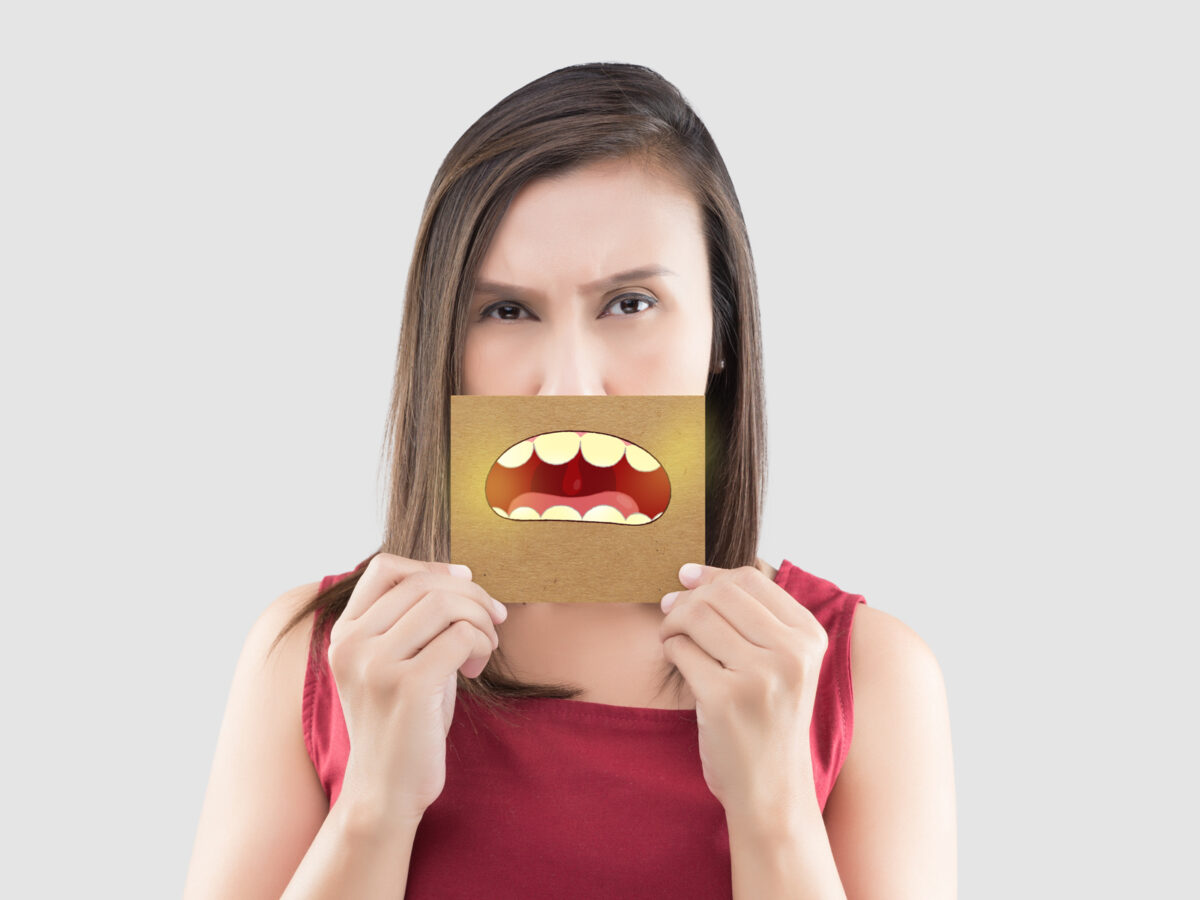Blog
Dental hygiene tips for healthy teeth & gums

How to Get Rid of Bad Breath?
Bad breath is an embarrassing problem many of us would have experienced in our lives. Whether you are going for an interview or having a party, talking to people gets hampered when your mouth has a foul smell, and your mind is preoccupied with that thought. That’s why you would find a plethora of mints, gums, mouthwashes, and many other products on store shelves that are designed to eliminate foul breath.
Bad breath is referred to as halitosis in medical language and is a condition that can arise due to varied reasons such as eating certain foods, specific health conditions, etc. In most cases, you should be able to get rid of foul breath by taking proper care of your teeth and gums, but if the problem persists, you need to investigate further the root cause of halitosis with the help of your dentist.
Most Common Causes:
Bad breath mostly occurs due to negligence of oral hygiene, which gives rise to odor-producing bacteria. If you are not brushing and flossing regularly, there are bits of food left in your mouth where bacteria accumulate and start feeding off. These bacteria release sulfur compounds that give a nasty smell. A few other reasons are:
- Dry mouth – Also called xerostomia, a dry mouth occurs when there is less saliva production in our mouths. Saliva helps in self-cleaning our mouths and removing debris and food particles left behind, so if it is not produced sufficiently, our mouths are not getting cleaned around the clock.
- Consuming tobacco products – Cigarettes, smokeless tobacco, cigars, etc., stain our teeth and also cause foul whiff.
- Other body conditions – Certain health conditions such as respiratory infection, diabetes, gastric reflux, and liver, or kidney disease may also lead to bad breath.
Some Myths About Bad Breath
There are lots of myths people believe in when it comes to bad breath. Here are the top three myths about foul breath which are totally incorrect:
- If you use mouthwash, the nasty smell will go – Mouthwash is just a temporary fix for bad breath. If you wish to use mouthwash, then you must find antiseptic and plaque-removing ones which can kill the bad breath-causing germs.
- If you brush your teeth regularly, you will not get a bad breath – Though oral hygiene is essential for any kind of dental problem, the amount of time you spend is crucial. Most people would brush only for 30 to 45 seconds which does not sufficiently clean all the parts of your teeth. You should brush for a minimum of two minutes and twice a day, including your tongue, as bacteria also love to hang out on your tongue. Brushing alone does not cut it, so flossing is another vital step in good oral care, as teeth stuck between your teeth do not come out by brushing.
- You can know if you have foul breath if you breathe on your hands – When you talk, you use your throat differently when you breathe on your hands. When you talk, odors from the back of your mouth also come out, so it is hard for a person to figure out about his or her own foul-smelling breath.
How to Get Rid of Bad Breath
You can easily improve your smell and keep your gum and teeth healthy by following simple steps at home:
- Brush and floss regularly – The sticky build-up in your teeth, called plaque, is what collects bacteria and causes a bad smell. If food is trapped in your teeth, then that aggravates the problem. Brushing twice and flossing at least once a day can take care of bad breath issues most of the time.
- Drink lots of water – Your mouth has naturally occurring bacteria that prevent erosion of teeth. But it also contains harmful and foul-smelling bacteria. Drinking lots of water throughout the day would ensure these nasty bacteria are flushed away.
- Use tongue scraper – Brushing can not remove all food particles accumulated inside your mouth and tongue. Food debris, dead cells, and bacteria can build up on your tongue, giving it a whitish color. You can quickly remove all this debris with the help of a tongue scraper.
- Rinse mouth – Whenever you eat, food gets lodged within your gum lines and teeth. Waiting till bedtime to brush your teeth would mean stale food is sitting in your mouth for hours. This can cause serious foul-scented breath. Rinse your mouth after every meal and snack, even if you do not brush each time.
- Eat certain food – Having probiotics like yogurt in your meals promotes the growth of good bacteria, such as lactobacillus, which can combat bad bacteria in your mouth. Pineapple juice is also a good solution for foul breath. Many folks also recommend having parsley to stop bad breath owing to its fresh smell and high chlorophyll content. Eating apples can stimulate your gums as apples have a fibrous texture and also remove plaque formed between your teeth.
Despite maintaining oral hygiene habits and making lifestyle changes to stop foul breath, if the problem still persists, then you might need to visit your dentist, who can guide you better. Finding the root cause of halitosis is essential since bad breath might mean other parts of your body are affected, which would need a general practitioner’s help.


